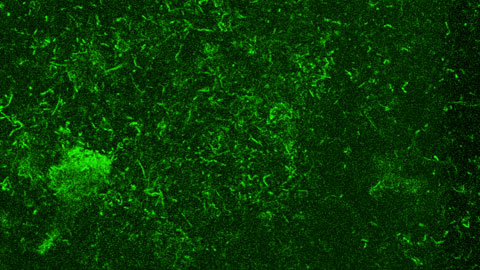Molecule capable of inhibiting DNA replication in bacteria discovered
Researchers from the UAB, VHIR and IBEC have identified a molecule with the potential ability to act as an antibacterial agent. The study appears in the journal PLoS ONE.

The new molecule, known as M-HA, inhibits the enzyme which is essential for the replication and reparation of bacterial DNA, the ribonucleotide reductase (RNR) and, in addition, shows low toxicity in eukaryote cells (as in humans), which therefore represents a large improvement on existing RNR inhibitor drugs, which are mainly used against cancer and other extremely toxic viruses since they are too strong to be used as antibacterial agents.
Antibiotics are essential in all health systems. The advances in modern medicine which we consider to be so common today, such as an increased safety in birthing, caring for preterm babies, surgeries, treating pneumonia, organ transplants and chemotherapy would not be possible without antibiotics. The resistance to antibiotics is a global health problem. Every year, 50,000 patients die of infections caused by multiresistant bacteria in Europe and the United States.